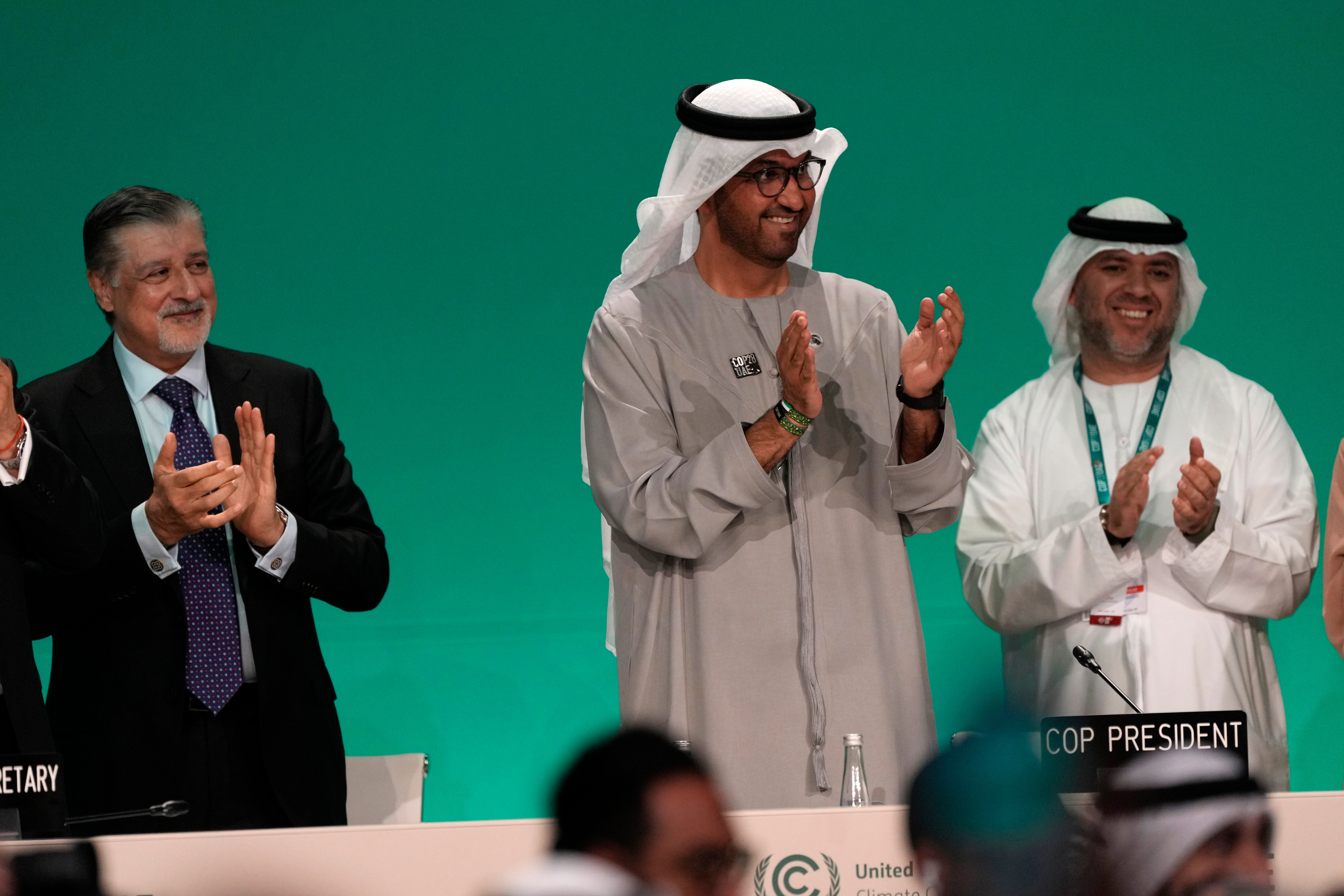Cop28 delegates agree to ‘transition away’ from fossil fuels
It is the first time that countries have agreed to stop using the carbon intensive energy sources.

Delegates have agreed to “transition away” from fossil fuels for the first time at the Cop28 climate talks in Dubai.
Language in the agreement was strengthened after widespread anger at a draft in which it suggested that countries “could” reduce fossil fuels but left too many holes for many nations to live with.
Sultan al-Jaber, the Cop28 President, said the delegates had gone down “a long road in a short amount of time”.
Many countries, such as small island states which are severely threatened by rising seas, believe there are still too many loopholes in the agreement but expressed confidence that it will lead to stronger action in future.
Developing nations reliant on fossil fuels for their economies also want to see the rich world provide more funding for their energy transitions.
The agreement defied the expectations of many observers who thought that the host country being a major oil exporter would be too much of a conflict of interest.
Opec, which represents oil-producing nations, had sent round a letter to its members in the final days of the negotiations urging them to reject any language that would commit them to a “phase-out” of fossil fuels.
The EU, UK and US all said they want to see stronger action that would keep the Paris Agreement of limiting global temperature rise to no more than 1.5C above pre-industrial levels – what Mr al-Jaber called his “north star”.
Mohamed Adow, director of Power Shift Africa, said: “For the first time in three decades of climate negotiations the words fossil fuels have made it into a Cop outcome.
“We are finally naming the elephant in the room. The genie is never going back into the bottle and future Cops will only turn the screws even more on dirty energy.”
Also part of the agreement is a tripling of renewable energy by 2030, which some NGOs described as a signal of the end of the fossil fuel era, while there is enough ambiguity in the transition away from fossil fuels to gain the approval of oil producers.
This phrasing led to the Alliance of Small Island States describing the text as a “litany of loopholes” and “incremental and not transformational”.
Other “loopholes” identified were a reference to phasing out “inefficient” fossil fuel subsidies and a commitment to reducing “unabated” use of hydrocarbons, leaving the door open for carbon capture technologies.
More than 100 countries had called for a “phase out” of fossil fuels though many oil-producing countries, as well as the UK’s climate minister Graham Stuart, have said that the fuel itself is not the problem but the emissions.
The International Energy Agency warned that reliance on carbon capture is unrealistic given it would require more electricity than the entire world’s current demand.
Manuel Pulgar-Vidal, former Cop20 President and WWF global climate and energy lead, said: “It is unfortunate that with the inclusion of the word unabated, the outcome suggests there is a considerable role for dangerous distractions such as large-scale carbon capture and storage and transitional fuels.
“This is not the case. For a liveable planet, we need a full phase out of all fossil fuels.”
Bookmark popover
Removed from bookmarks